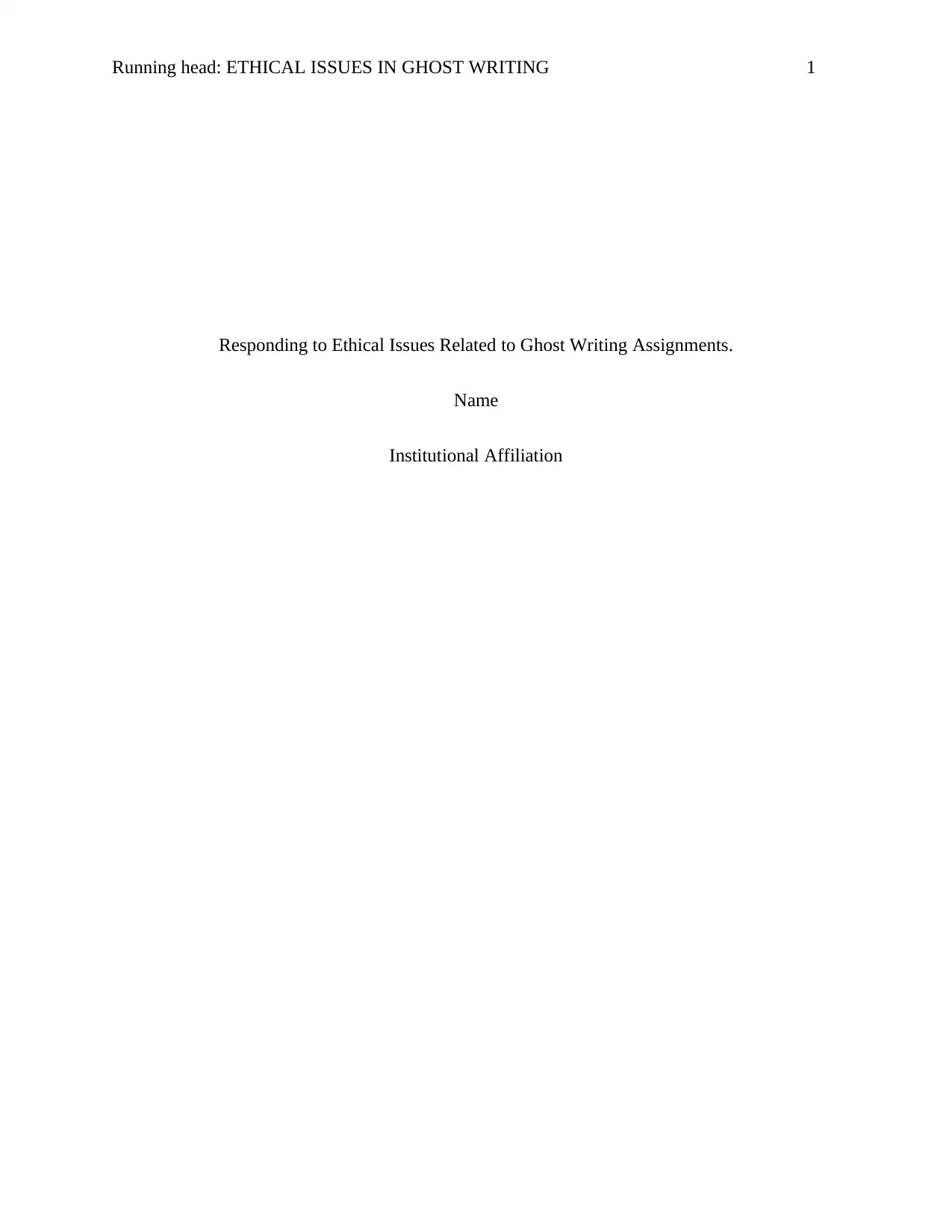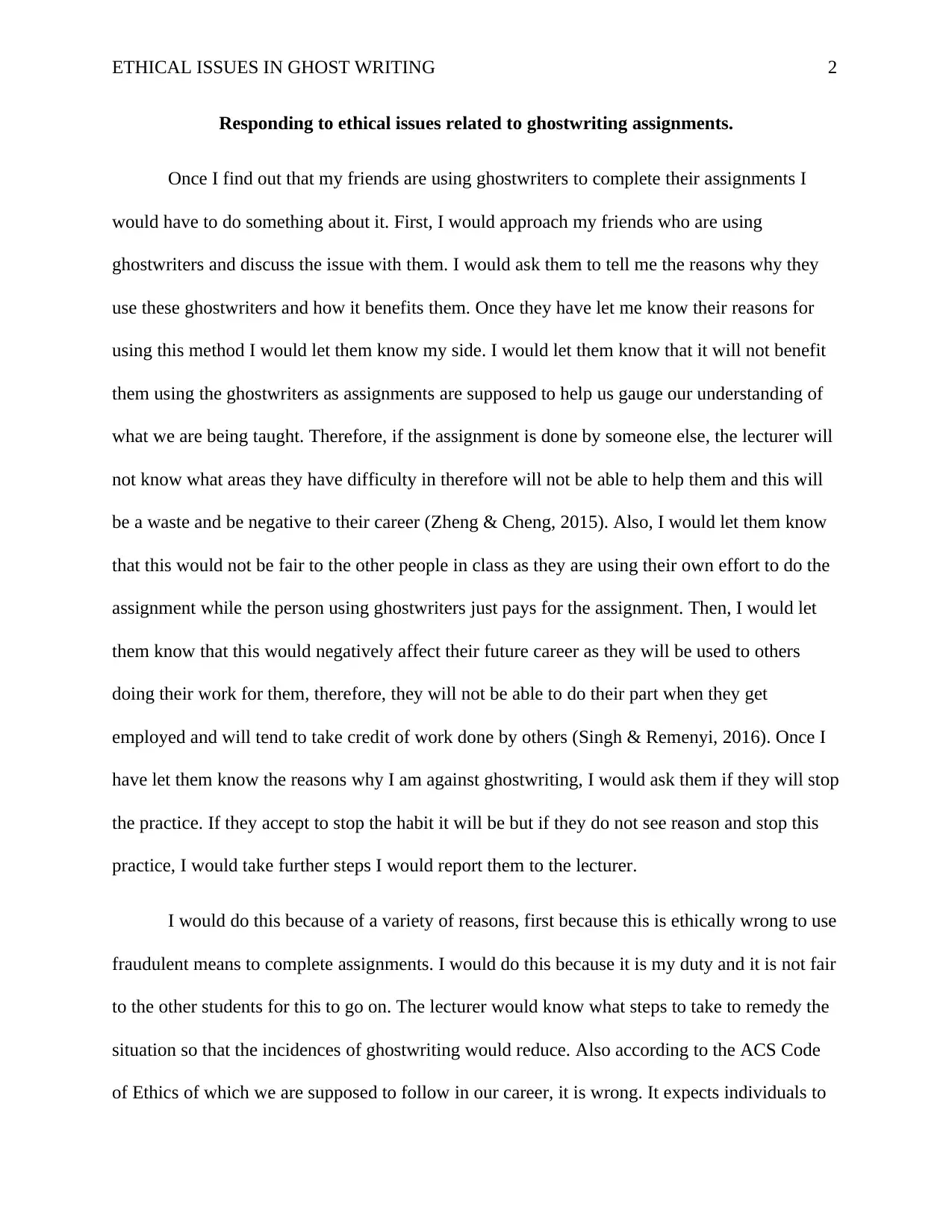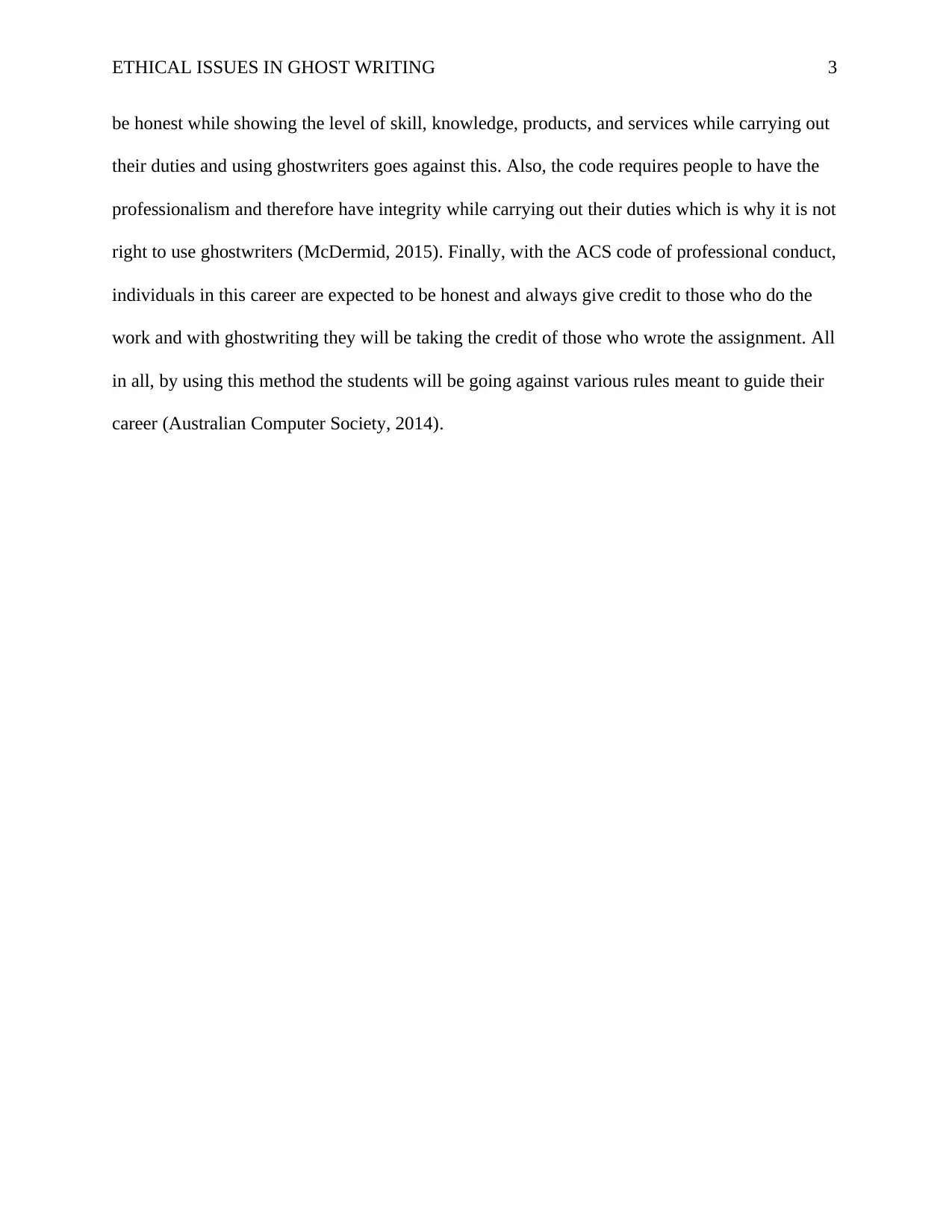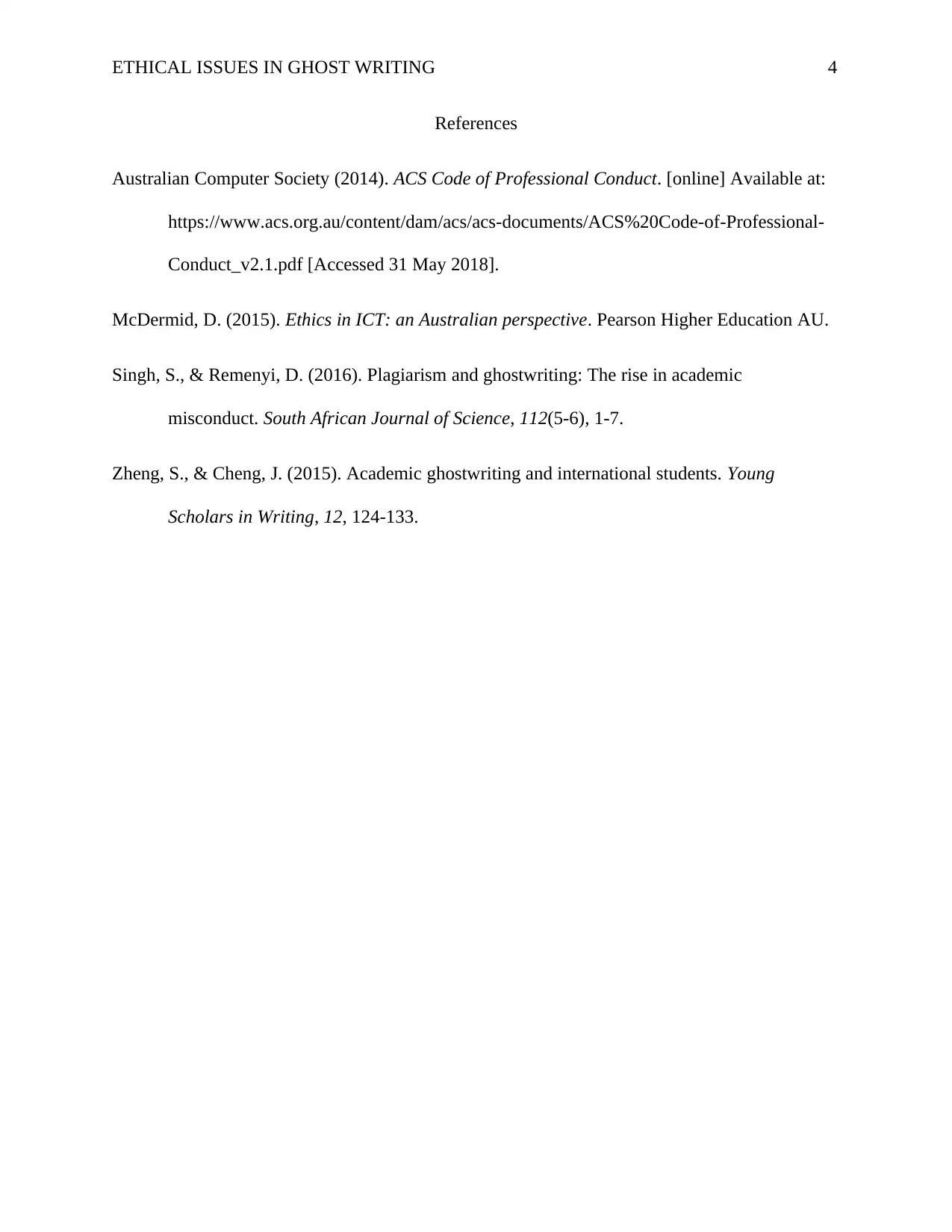COIT20249 Assessment: Ethical Considerations Regarding Ghostwriting
VerifiedAdded on 2023/06/11
|4
|722
|120
Essay
AI Summary
This essay addresses the ethical concerns related to ghostwriting in academic assignments, particularly within the context of the COIT20249 portfolio assessment. It explores the author's response to discovering friends using ghostwriters, detailing a strategy that involves direct conversation, highlighting the negative impacts on learning and fairness, and emphasizing the violation of professional ethics codes such as the ACS Code of Ethics. The essay argues that ghostwriting undermines the purpose of assignments, disadvantages other students, and negatively affects future career prospects by fostering dependence on others' work. Ultimately, the author concludes that reporting the practice to the lecturer is a necessary step to uphold academic integrity and professional standards. Desklib offers a variety of resources including past papers and solved assignments to support students in their academic endeavors.
1 out of 4










![[object Object]](/_next/static/media/star-bottom.7253800d.svg)